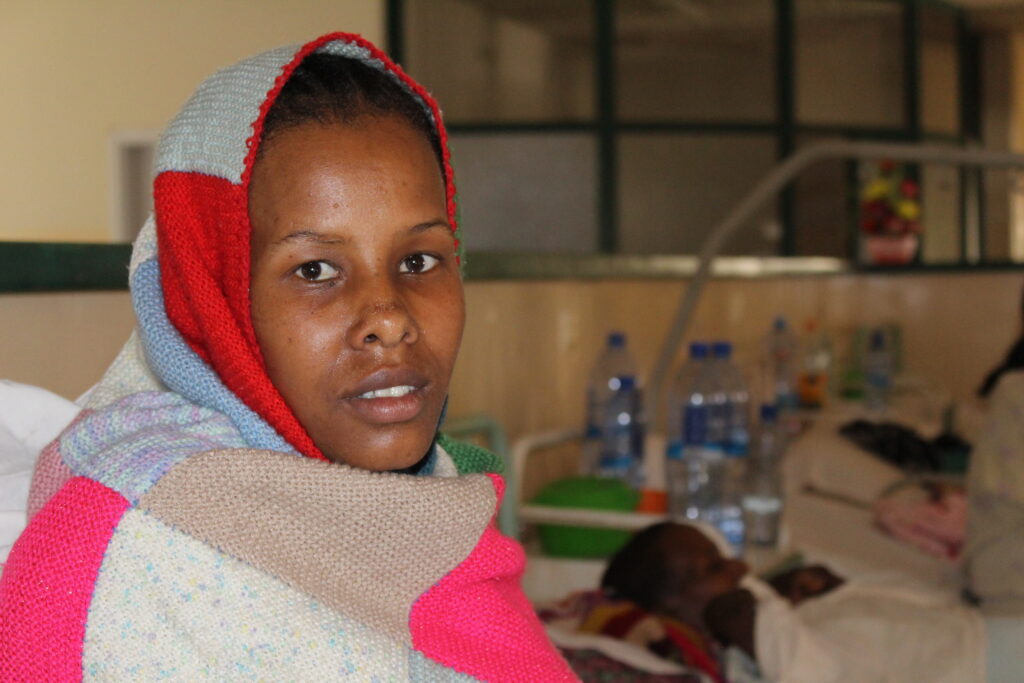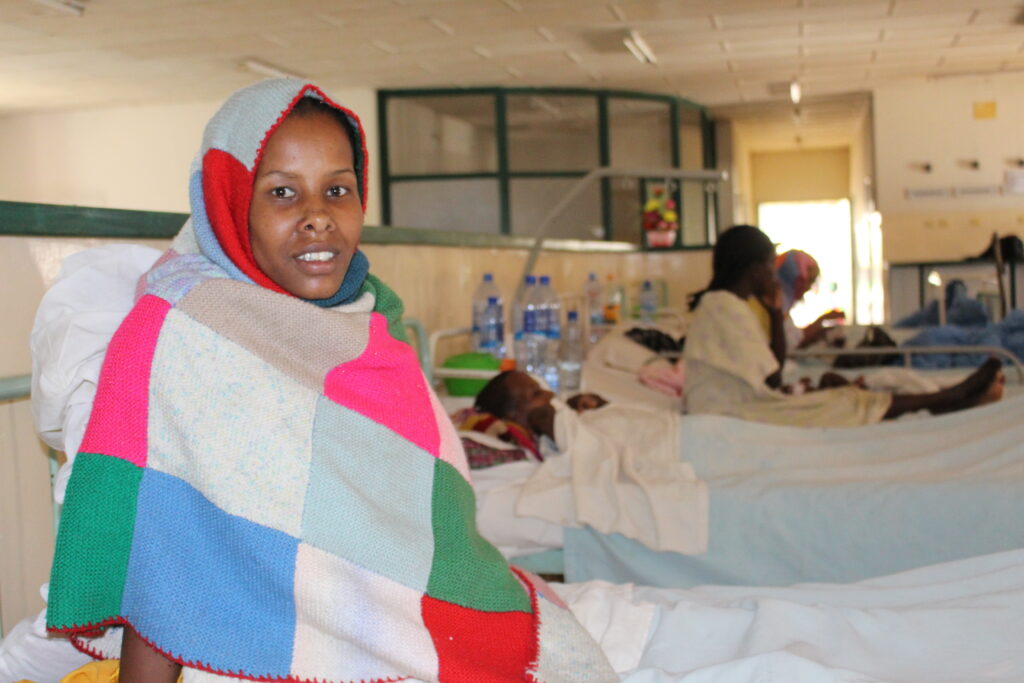Birth injuries and stillbirth are a part of the often unseen and uncounted collateral damage of war. This is twenty-five-year-old Fatuma’s story

Fatuma is originally from a remote rural village in Northern Ethiopia, a war affected region facing devastating damages from the recent conflict. Traditionally, survival revolves around farming the family land for a subsistence level of living. Fatuma and her five siblings never attended school but spent their childhoods shepherding and helping their parents.
Fatuma is originally from a remote rural village in Northern Ethiopia, a war affected region facing devastating damages from the recent conflict. Traditionally, survival revolves around farming the family land for a subsistence level of living. Fatuma and her five siblings never attended school but spent their childhoods shepherding and helping their parents.
At 17, Fatuma was married to a caring man and led a happy married life – except for eight years of infertility. Last year, their eager prayers were answered as she conceived for the first time – exciting news for the entire family. Fatuma considered herself lucky to be nearby a newly constructed government maternity clinic.
As this pregnancy happened after years of trial and prayers, I didn’t want anything to happen that would impact the delivery. Sometimes I even visited the nurses at the clinic earlier than my appointments. They told me that I had two babies in my womb and should come to the clinic as soon as I experienced signs of labour that they taught me.

Eagerly anticipating the birth of their babies and carefully following the nurses’ advice, Fatuma and her husband waited. Things did not go to plan. With their area now under control of rebel fighters, the health professionals fled the clinic, and the remaining equipment and drugs were looted.
I was deeply shocked. My case was critical because I had twins, and the nurses repeatedly warned me to deliver only at the clinic. There was no transportation even if we wanted to travel to nearby towns. No one moved around and were living like in home arrest. I was praying for a miracle to happen and deliver my babies safely. But that didn’t happen.
Every woman has a right to a safe childbirth, but war is no respecter of persons. With no other options, Fatuma stayed home when her labour began in August last year. It did not go easy. After four painful days, her mother pulled out the emaciated stillborn twin babies and saved Fatuma’s life.
Two days after the labour started, I became completely unconscious and unable to push anymore. My mother told me that half of the dead body of the first baby was out of my body; then I fell into a coma. It was only hours after the stillborn twins were out that I became conscious. When I woke up the first thing I asked for was my babies. It is too hard to accept the loss of the babies that I waited for eight years. I wished my death was with them and fell under a deep sorrow and sadness.
Fatuma didn’t urinate for two days after the delivery. When she finally did, it came in a flood while she was sleeping. Obstetric fistula was not a condition she had ever heard of before.
At first, I hoped I would recover with time. My mother would clean the bed sheets and clothing, but it was the same day in day out. I spent six months feeling shamed of myself. Everyone thought my case was very strange. Our area was still under siege, no light, no telephone, no transportation, nothing. Those months were the worst time in my life.
Finally, Fatuma was able to seek help at a government hospital, where they referred her to the Hamlin Fistula Hospital at Bahir Dar. In February, the staff there welcomed Fatuma with their renowned love and affection. A week after her arrival she received surgery and was cured. The hospital is working hard to identify other women like Fatuma who were damaged by unattended deliveries during the conflict.
Here at the hospital, I have been treated like a princess. I have received the best and quality services, tasty food, clean clothing, and a neat bed. Yet all these services are free. I can’t thank you enough for bringing my life back. Much respect for those who started it and all of you working on its continuation - Fatuma
You can help us make sure women like Fatuma don't have to suffer from fistula. Donate today to make a difference.


